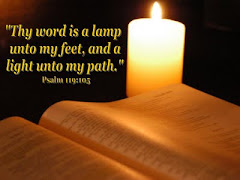 When Jesus confronted the crowd that was threatening to stone the woman caught in adultery in John 8:2-11, what did he write on the ground with his finger?
When Jesus confronted the crowd that was threatening to stone the woman caught in adultery in John 8:2-11, what did he write on the ground with his finger?This question came up in my men's group this morning, in the context of the larger question "Did Jesus ever write anything down?" First, the passage from John we were discussing:
Early in the morning [Jesus] came again to the temple; all the people came to him, and he sat down and taught them. The scribes and the Pharisees brought a woman who had been caught in adultery, and placing her in the midst they said to him, "Teacher, this woman has been caught in the act of adultery. Now in the law Moses commanded us to stone such. What do you say about her?" This they said to test him, that they might have some charge to bring against him. Jesus bent down and wrote with his finger on the ground. (John 8:2-6, RSV-CE)
The fact is, since the Scriptures don't explicitly say in this passage, we don't really know what he wrote--or even if he was writing or drawing (the literal Greek says he was "tracing."). One theory I've heard is that he was simply doodling to show his unconcern with the debate going on around him. I myself favor what is found in the Ignatius Catholic Study Bible, Gospel of John:
8:8 wrote…on the ground: What Jesus inscribes in the dirt is unknown but probably symbolic. * The gesture may recall Jer 17:13, a warning that those who forsake the Lord “shall be written in the earth” because they have rejected the “fountain of living water”. The Pharisees fall into this category for rejecting Jesus, who has just been identified as the source of “living water.” (see John 7:38).
Here is the passage from Jeremiah (17:13):
O LORD, the hope of Israel, all who forsake thee shall be put to shame; those who turn away from thee shall be written in the earth, for they have forsaken the LORD, the fountain of living water.
In other words, Jesus gave them a 'two-fer' here. Not only did he (1) show those around him that he knew what their sins were, and that they had better think of mercy as well as justice, and (2) Those more educated Pharisses standing near-by, remembering the context of the entire quote from Jeremiah, would be challenged again for their not believing in Jesus.



No comments:
Post a Comment